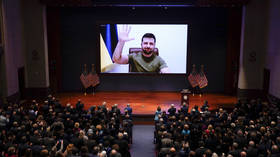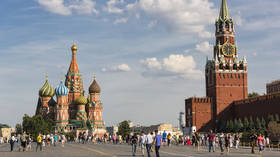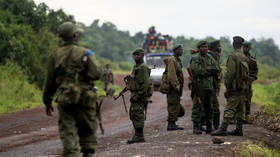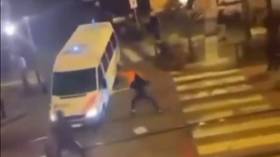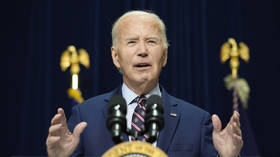Details of possible Ukraine peace deal revealed – media
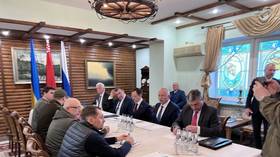
Ukraine and Russia have taken steps toward a “15-point peace plan” that would see Russian forces withdraw in exchange for a pledge of neutrality by Ukraine, the Financial Times reported on Wednesday. However, sticking points remain, and both sides have issued mixed statements on the prospects of imminent peace.
Citing three people involved in negotiations, the news outlet said that a deal was being worked out whereby Ukraine would renounce its ambitions to join NATO – a move that would require changing the country’s constitution – and refusing to host any foreign military bases or weapons in exchange for security guarantees from the US, UK, and Turkey.
Russia would cease hostilities and withdraw its forces from Ukrainian territory in exchange for this neutrality pledge, while Ukraine would be allowed to keep its army, the newspaper reported.
People involved in the deal told the paper that Russian-speakers in Ukraine would receive guarantees that their language rights and other humanitarian concerns would be safeguarded, although Ukrainian negotiator Mykhailo Podolyak said that Kiev would only agree to this if these issues were in line with “Ukraine’s exclusive interests.”
Likewise, the status of Crimea – which voted to rejoin Russia in 2014 – and the Donbass republics – recognized by Russian President Vladimir Putin two days before the outbreak of hostilities last month – remain sticking points toward any deal.
With talks ongoing, Kremlin Press Secretary Dmitry Peskov on Wednesday called it “premature to disclose any sets of agreements.” However, Russian Foreign Minister Sergey Lavrov told reporters that both sides were “close” to agreeing to “absolutely specific wordings” in the negotiations.
Ukrainian President Volodymyr Zelensky has repeatedly stated that he is ready to talk directly with Putin to bring about a settlement, but Lavrov told reporters on Wednesday that the Ukrainian leader has yet to take any further steps. Putin, he said, has declared his willingness to talk, but Zelensky has made statements like this for the sake of “publicity,” he added.
While Zelensky has talked up his willingness to meet with Putin, and conceded on Tuesday that Ukraine will not be allowed to join NATO, he has nevertheless continued to lobby Western leaders to intervene in the conflict. In a video address to US lawmakers on Wednesday, he reiterated calls for a NATO-enforced “no-fly zone” over Ukraine, even though the Biden administration and NATO leadership have stated that this could possibly lead to a direct confrontation with Russia.
And while Putin has previously accused Zelensky of “not showing a serious commitment to finding mutually acceptable solutions,” Lavrov on Wednesday praised the Ukrainian leader’s “change of rhetoric” on NATO membership.
Moscow attacked its neighbor in late February, following a seven-year standoff over Ukraine’s failure to implement the terms of the Minsk agreements, and Russia’s eventual recognition of the Donbass republics in Donetsk and Lugansk. The German- and French-brokered protocols were designed to regularize the status of those regions within the Ukrainian state.
Russia has now demanded that Ukraine officially declare itself a neutral country that will never join NATO. Kiev insists the Russian offensive was completely unprovoked and has denied claims it was planning to retake the two republics by force.
